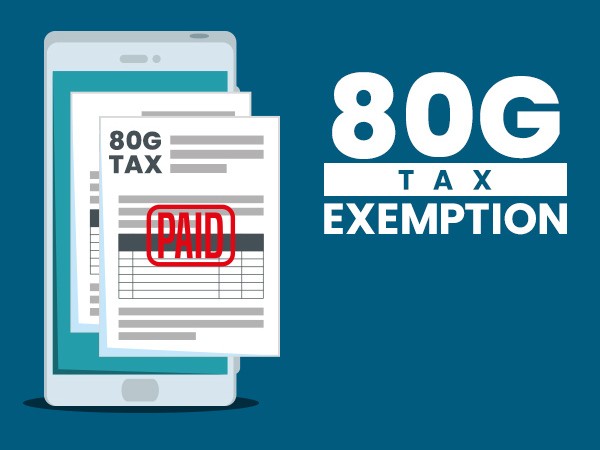NGO Registration
Secure Your Intellectual Property Today
NGO Registration Services
Starting an NGO in India involves navigating various legal and procedural formalities. Our experts assist you in every step of your NGO journey — from registration to government compliance. Whether you want to start a charitable trust, society, or a Section 8 company, we provide complete guidance and documentation support.

Section 8 Company / NPO Registration
Section 8 Company is the most preferred form of NGO registration for those aiming to promote charity, education, art, science, sports, or social welfare. It is governed by the Companies Act, 2013. We assist in name reservation, drafting MOA/AOA, filing with the Registrar of Companies (ROC), and obtaining the license from MCA.
Key Features:
Tax benefits under Income Tax Act
Legal identity and limited liability
Easier compliance with government and donors

Trust Registration
A public charitable trust is ideal for managing property or assets for religious or charitable purposes. It is governed by the Indian Trusts Act, 1882 (or state-specific trust acts). We help with drafting the trust deed, identifying trustees, and registering the trust with the local Sub-Registrar office.
Key Features:
- Simple formation
- Suitable for family-run or region-specific activities
- Long-term asset management

Society Registration
Societies are formed by a group of individuals united for a common purpose such as culture, education, religion, or social development. Registered under the Societies Registration Act, 1860, societies enjoy legal status and recognition.
Key Features:
- Transparent structure with elected members
- Governed by rules and regulations outlined in bylaws
- Ideal for associations and cultural organizations

NGO Darpan Registration
NGO Darpan is a government portal managed by NITI Aayog to bring transparency in the functioning of NGOs and facilitate their interaction with government departments. We help you register your NGO on this platform to be eligible for government grants and projects.
Key Benefits:
- Unique ID generation for your NGO
- Recognition by various ministries
- Requirement for FCRA registration

FCRA Registration
Foreign Contribution Regulation Act (FCRA) registration is mandatory for NGOs that intend to receive foreign donations. We guide you through eligibility assessment, documentation, and filing the FCRA application with the Ministry of Home Affairs.
Key Benefits:
- Legally accept donations from abroad
- Enhanced credibility among international donors
- Essential for global fundraising

80G & 12A Registration
To avail of tax exemption benefits for both the NGO and its donors, registration under Sections 80G and 12A of the Income Tax Act is essential. We help you prepare the application, submit required documents, and follow up with the Income Tax Department.
Advantages:
- Donors get tax benefits
- NGO gains credibility
- Enables better fundraising

Corporate Social Responsibility (CSR)
Many companies are now mandated to invest in CSR activities. We connect NGOs with such companies by ensuring your NGO complies with CSR eligibility and reporting standards. Our team helps NGOs become CSR-ready and maintain proper governance.
Services Offered
- CSR project documentation
- CSR compliance and reporting
- NGO-Company partnership facilitation
Get Appointment
Got a Question?
Have questions about starting or managing an NGO? Our FAQ section covers the most common queries related to NGO registration, legal compliance, funding, and tax benefits. Whether you’re just beginning or looking to expand, these answers will help you understand the process better and make informed decisions.
It depends on your goals. If you’re planning to work at a national level with a structured organization, a Section 8 Company is ideal. For local or family-run charitable activities, a Trust may be more suitable. If you want a democratic setup with multiple members, a Society is a good option.
The time varies depending on the type of NGO. On average:
Section 8 Company: 20–30 working days
Trust: 10–15 working days
Society: 15–20 working days
Yes, but the NGO must be registered under the FCRA (Foreign Contribution Regulation Act). Without FCRA approval, foreign donations are not legally permitted.
Mauris nibh urna, porttitor sit amet efficitur at, laoreet et arcu. Sed vitae felis dui. Pellentesque sodales ac mauris euismod ullamcorper. Mauris ac tellus fringilla, rhoncus ligula quis, efficitur lacus. Aliquam in nulla nec justo dignissim convallis. Vestibulum ultrices maximus ornare. Morbi a nisl vel enim aliquam iaculis et eget eros.
These registrations allow the NGO to offer tax deductions to donors under Section 80G and claim income tax exemption under Section 12A, making fundraising easier and more credible.
Mauris nibh urna, porttitor sit amet efficitur at, laoreet et arcu. Sed vitae felis dui. Pellentesque sodales ac mauris euismod ullamcorper. Mauris ac tellus fringilla, rhoncus ligula quis, efficitur lacus. Aliquam in nulla nec justo dignissim convallis. Vestibulum ultrices maximus ornare. Morbi a nisl vel enim aliquam iaculis et eget eros.
While not legally mandatory, NGO Darpan registration is essential for receiving grants from government departments and ministries. It helps establish your NGO’s authenticity.
Mauris nibh urna, porttitor sit amet efficitur at, laoreet et arcu. Sed vitae felis dui. Pellentesque sodales ac mauris euismod ullamcorper. Mauris ac tellus fringilla, rhoncus ligula quis, efficitur lacus. Aliquam in nulla nec justo dignissim convallis. Vestibulum ultrices maximus ornare. Morbi a nisl vel enim aliquam iaculis et eget eros.
Commonly required documents include:
PAN and Aadhaar of founders
Address proof of office
MOA, AOA, or Trust Deed/Bylaws
Passport-sized photos
NOC from property owner (if rented)
No, NGOs are non-profit entities. However, they can generate income through activities, grants, or donations, which must be reinvested into the organization’s objectives.
Corporate Social Responsibility (CSR) is a mandatory contribution by eligible companies towards social development. NGOs can receive CSR funds if they are registered, compliant, and listed as eligible under CSR rules. Proper documentation and project proposals are needed.
